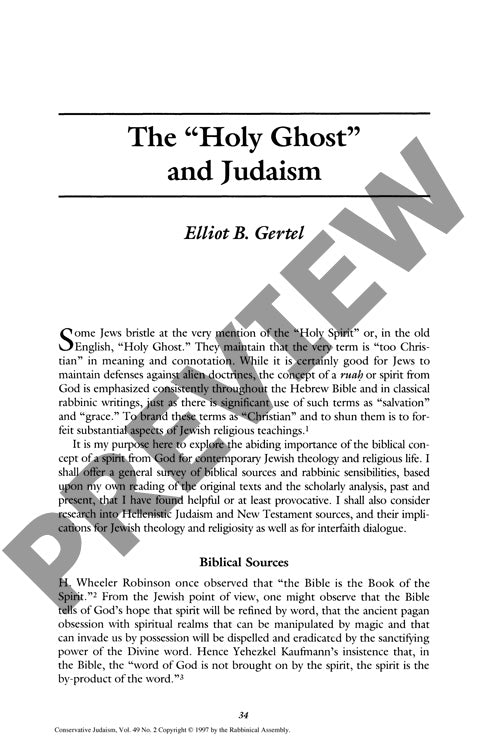The Holy Ghost and Judaism
Couldn't load pickup availability
The concept of divine spirit (ruah) carries far deeper Jewish roots than many modern scholars acknowledge, challenging the widespread assumption that "Holy Spirit" belongs exclusively to Christian theology. Biblical and rabbinic texts reveal four distinct patterns in Hebrew scripture's treatment of divine spirit: its anti-incarnational character, its emergence as a reluctant divine response to human weakness, the steadfast nature of the "spirit of wisdom" (ruah hokhmah), and its consoling presence for Israel after exile. Through close reading of original Hebrew texts, scholarly commentary, and analysis of Hellenistic Jewish and New Testament sources, a striking evolution emerges: while biblical ruah manifests as an irregular divine intervention, rabbinic interpretation transformed it into a force intimately connected with Torah study and textual preservation rather than charismatic experiences. The New Testament's Holy Spirit concept ultimately represents a fundamental break from Hebrew biblical understanding, complicating meaningful interfaith dialogue. Yet the biblical "spirit of wisdom" offers promising common ground for Jewish-Christian discussions, presenting a universal divine gift rather than a denomination-specific doctrine.

More Information
-
Physical Description
-
Publication Information
Published 1997
ISBN
-
Publication Credits
Elliot Gertel

